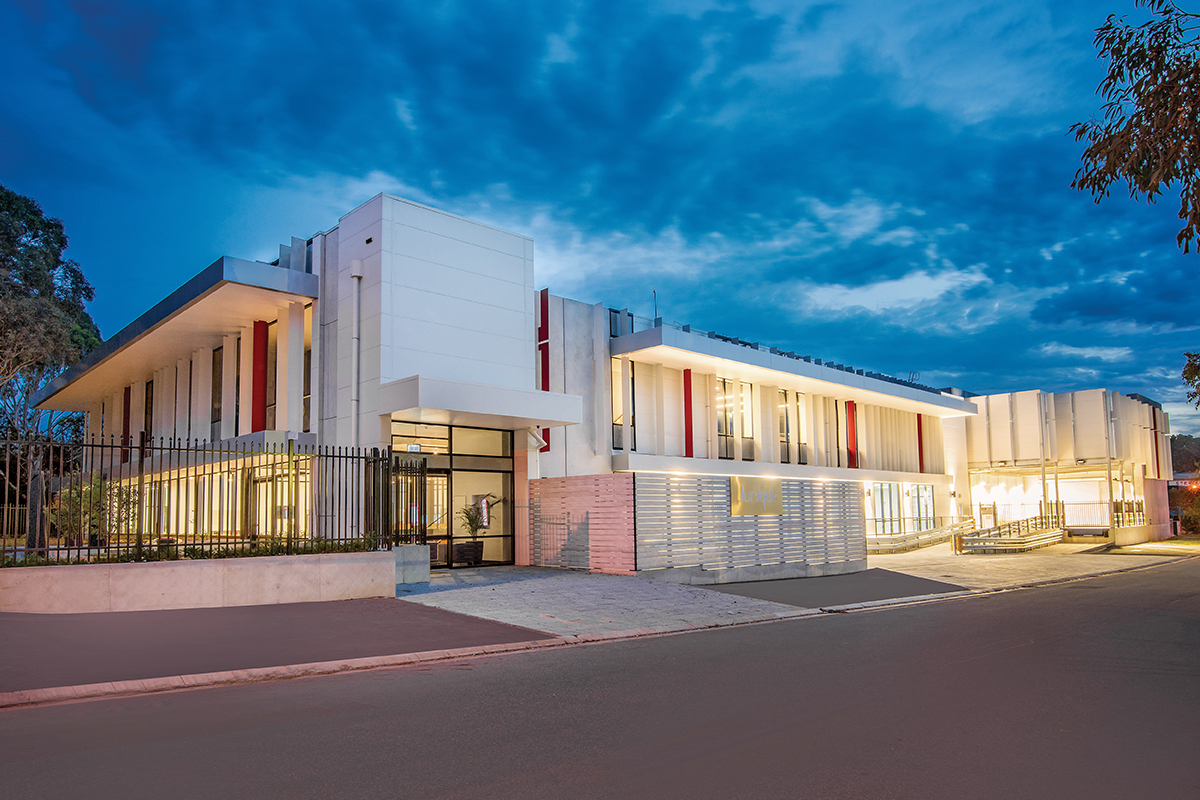Working better as a team: Jim Whiting
At the core of Australian construction company Badge is the five-letter acronym TICCA, which governs how each worker should operate. Founder and Managing Director Jim Whiting reveals what TICCA stands for and its importance in the company.
In the five years since BADGE Founder and Managing Director Jim Whiting last spoke with The CEO Magazine, the construction company has achieved several milestones. It has broadened and diversified its offerings to cater to the food-processing industry, secured a public–private partnership (PPP), undertaken more defence-related projects, and partnered with National Aboriginal Construction Partners to form joint venture NACP Projects.
"We have a lot of exciting projects we’re working on in defence, and with the Indigenous partnership," Jim says. "When you get to our size, you tend to work on projects that are bigger and take longer to happen. But we’ve got a lot of good people and a lot of capability, and it’s my job and our senior management’s job to get our team good work."

Along with new projects, Jim is seeing some new trends in construction, such as an increased use of prefabricated parts on building sites. "I wouldn’t say it’s a flood of prefabrication; it’s happening relatively slowly," he says. "In fact, we just finished an aged-care facility in Queensland – a very high-end one – that had prefabricated bathroom pods. It worked out very well; they just came put together, and all you’ve got to do once you get them connected is basically put a toilet roll on the toilet roll holder and away you go. There’s a lot more of that happening, particularly in high-rises, and there will be more of that going forward."
"We have a lot of exciting projects we’re working on."
TICCA
Amid all these changes and new projects, one aspect at BADGE remains the same: its company culture. "A little acronym we use for our organisational values is TICCA," Jim says. "It stands for teamwork, integrity, client focus, continuous improvement, and accountability."
Indeed, teamwork is a priority for BADGE. "This industry is a tough game and can be a bit adversarial at times, so it’s important that we work as a team," says Jim. This is especially true when the company undertakes construction projects. "All of our sites have registers so we know who’s on that site at any one time," Jim continues. "The number of people we have onsite is usually around 2,000 during the course of a project, and what I say to my team is that we are responsible for the building and for everyone’s safety."


Teamwork also plays a role in keeping company morale high. "If everybody works to those organisational values, it keeps the team motivated," he says. "It’s not for me to come in or any one of the other executives to do that. It’s a team game, so we need to pick someone up when they’re down. What we promote to our people is to treat everybody on our site exactly the same. It doesn’t matter whether they’re a subcontractor, a consultant, or the client. Because at the end of the day, we’re all there to produce the product the client wants."
"What we promote to our people is to treat everybody on our site exactly the same."
Enjoying milestones
When BADGE first launched in the 1980s, interest rates were high, and the company didn’t have the working capital it has now. But despite the success the company has seen, one factor continues to present an issue. "Perhaps the thing I get most frustrated about is the red tape in the building industry," Jim says. "It happens in a lot of industries, I know, but ultimately, red tape is unproductive for all of us. It means we can’t roll out our products for the best price, and everybody pays more."
This year marks 35 years of operations for BADGE – another milestone. And one aspect that Jim is most proud of is watching his team progress in their careers and reach their own milestones. "We’ve got a club we run for the under-25s called Club 25," he says. "When they’re in their last year of the club, we hold a graduation, and they do a personal development course as part of the graduation. This part of the business, seeing people progress and enjoy their careers – and it doesn’t just have to be younger people – is something I enjoy."